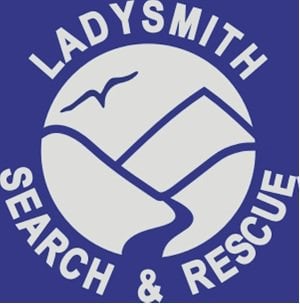5 Myths about Search and Rescue
Myth 1: You have to wait 24 hours
This one is the worst. Promulgated on TV shows for the past 3-4 decades, this is one of the myths that has definitely caused people harm, and probably a few fatalities.
If someone is missing in the back-country, it is an emergency and you you do not have to wait before reporting them missing. If you yourself are lost, you can call 911. If you’re lost and can’t call 911, know that if you are reported missing by a friend or family member, we will start searching immediately.
Myth 2: We can find you using your phone
This one is interesting. TV shows and almost any legal or police procedural often use this “trope” of being able to pinpoint the location of someone by using the phone. It’s partially true that cell phones can reveal your “rough” location, but when you are in the back-country it is much less accurate. There are methods we can use to try to locate you, but it is by no means as easy as the TV and movies make it look.
Never rely on your mobile phone to get you out of trouble as the battery life, and range of these devices are not reliable in the wilderness, even very close to major cities! The best way to make it easier to find you is to leave a trip plan with a friend,  like the one at AdventureSmart.
like the one at AdventureSmart.
Myth 3: You have to pay for Rescue
You do not have to pay to be rescued in British Columbia, and we know of no jurisdiction in Canada where you have to pay.
This myth has also almost certainly caused harm. If someone thinks they will be charged, they might not call for help. Any delay in activating Search and Rescue can result in the missing person being more difficult to find. A delay can turn a simple search in the daylight into a difficult night time rescue. A delay can turn a short rescue into a challenging, expensive (for the taxpayer) and risky (for the searcher) job.
If you know you are lost, do not hesitate to call for rescue. It’s free, and calling early makes our job faster, easier and safer.
Read the official position of the  BC Search and Rescue Assocation (BCSARA) on
BC Search and Rescue Assocation (BCSARA) on  not charging for rescue.
not charging for rescue.
Myth 4: SAR Members are paid
It may seem like SAR members are paid. We are professional, we are well trained, and we rescue people, something you’re probably used to seeing paid people do. Often the media refers to us as “SAR Techs”, or “Search and Rescue Officials”.
The truth is that all Ground SAR members in British Columbia are volunteers. Those people you see on the evening news have regular jobs, and devote their spare time to training, and rescuing people. They take the job seriously, and consider themselves to be unpaid professionals.
In fact, Coquitlam SAR members train once a week, and for one weekend a month, not including first aid and other specialized rescue courses. Our members volunteer between 200 and 300 hours a year to the people of BC. You can read more  about our training here.
about our training here.
Myth 5: SAR Teams are well funded
Not entirely.
In British Columbia, SAR teams are reimbursed for expenses incurred during a task. They also receive a limited amount of funding for training. Other funds come from donations, sponsorship, and grants.
The fact is that SAR teams rely on support from the public and corporations. Most SAR teams in BC and in Canada are registered charities. You can support the good work of Ladysmith SAR and help us save lives by  donating online
donating online
